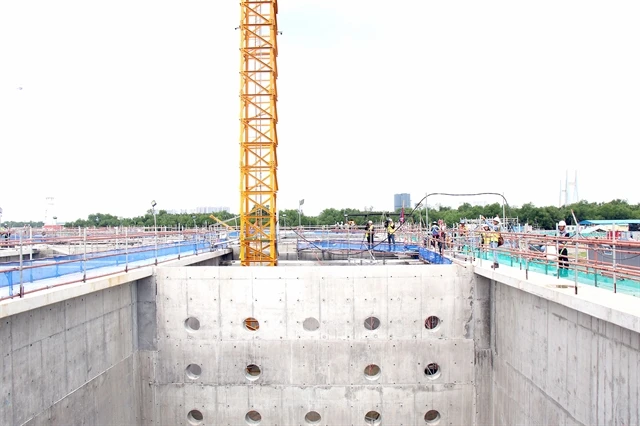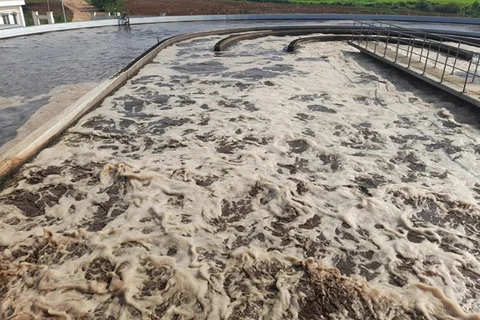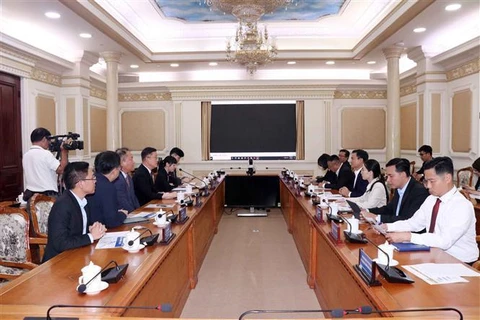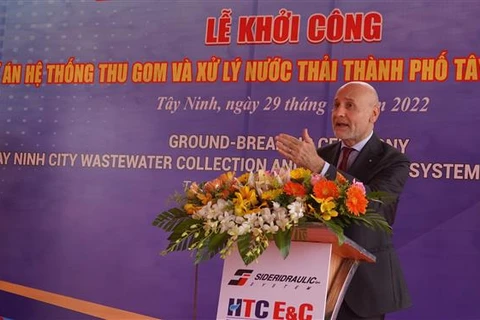
HCM City (VNA) - Construction of the Nhieu Loc - Thi Nghe wastewater treatment plant project in Ho Chi Minh City, which will be the largest in Southeast Asia, is around 41% complete and is expected to be put into use in June, 2025.
The project’s investor, the city’s Urban Infrastructure Construction Investment Project Management Board, has recently announced that the project is one of eight component projects of the second phase of the city’s environmental sanitation project worth 11.13 trillion VND (524 million USD).
The plant will treat wastewater that is currently being discharged untreated into the Sai Gon River.
It uses advanced Moving Bed Biofilm Reactor (MBBR) technology, which is one of the most popular biological treatment methods.
The MBBR wastewater treatment method helps remove organic substances in wastewater.
In this method, the reactor is filled with thousands of biofilm carriers (plastic balls) that protect the bacteria used to break down pollutants in the wastewater. A diffuser grid produces the air required to effectively disperse the biofilm carriers throughout the basin, while also providing the necessary aeration for biofilm growth.
Once completed, the Nhieu Loc - Thi Nghe wastewater treatment plant can treat 480,000 cubic metres of wastewater per day.
The city now treats about 644,000 cu.m of wastewater per day, accounting for only 40% of its daily wastewater discharge.
The new facility will raise the city’s daily wastewater treatment capacity to 1.1 million cu.m per day, or about 71% of the daily wastewater discharge.
The second phase of the city’s environmental sanitation project began in 2025, aiming to complete the wastewater collection and treatment system for the entire Nhieu Loc - Thi Nghe area and former District 2.
The project will benefit some two million people in Thu Duc city and districts 1, 3, 10, Phu Nhuan, Tan Binh, Binh Thanh, and Go Vap.
It will also provide technical assistance to improve the city’s sanitation and wastewater management practices./.






















